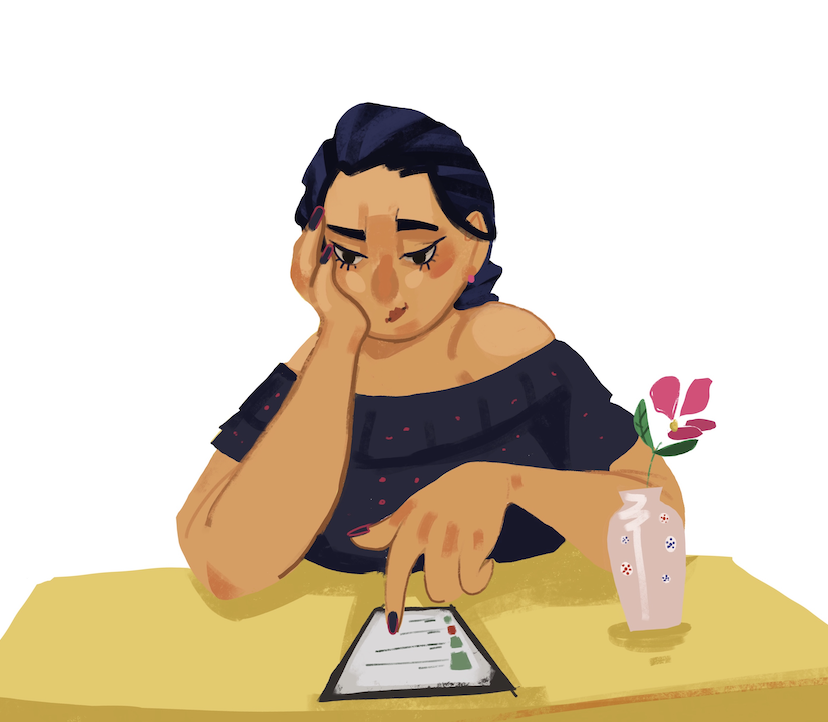OPINION: USC should introduce student-accessible course evaluations

During course registration there’s likely no website as popular as RateMyProfessors. According to its website, students have written 19 million ratings of over 1.7 million professors from more than 7,500 schools. It boasts being the “highest trafficked site for quickly researching and rating professors.” As the largest, most accessible way to read reviews of professors, this website is like the college students’ Bible, helping them decide which classes and instructors to take.
RateMyProfessors is an anonymous feedback platform which anyone can contribute to — no verification needed — for students to rate professors. Students can rate a professor’s overall quality out of five, state whether they would take the professor again and evaluate the level of difficulty on a five-point scale. There are also optional tags, such as “tough grader” or “respected” or “amazing lectures.” Commenters can also write comments, similar to a Facebook post, about any additional information he or she wants to share. There even used to be a “spiciness” rating for students to rate the physical attractiveness of an educator — but that feature was removed last year following backlash from those rated on the site, particularly female professors, who said the feature enabled sexism and objectification in teacher reviews.
At the end of the semester — once students have a full picture of a course — students should be mandated to anonymously fill out a review of the professors whose courses they completed. If students do not fill out reviews, repercussions could include a hold on student accounts (similar to financial holds) or however else each department sees fit. It would also be reasonable to mandate faculty peer evaluations as well. The USC Center for Excellence in Teaching offers professional templates for schools and departments implementing peer reviews to improve teaching practices.
The first issue with using RateMyProfessors is that only the strongly opinionated are motivated to leave reviews. As a result, the reviews are always written by students who either hated or loved their educators. the site is a space to either kiss the professor’s feet or publicly lash them, not a space to provide objective feedback. This notion is backed up by a psychological phenomena called volunteer bias. Though it’s hard to statistically gauge the impact of volunteer bias, according to the Catalogue of Bias, “[When] the sample consists of volunteers, the risk is that they are not representative of the general population.” Thus, RateMyProfessors can only offer a limited perspective on what it is like to experience a class.
Student reviews are also often impacted by implicit bias. Certain stereotypes affect the understanding of others and their actions at an unconscious level. A Texas Tech University study showed that male professors are more likely to be analyzed for qualifications and competence, whereas female professors are more likely to be reviewed for personality and appearance. Another study by a Colgate University professor found that student evaluations consistently favor “white, cisgender, American born men.” These personal biases are something that students need to be aware of when reading reviews.
A few, but not all, departments at USC require student reviews. Nevertheless, those reviews are not made accessible to students. There was a way to find course evaluations online through MyUSC, but that feature no longer appears. The way to combat snarky, immature feedback that students rely on is to have a system for USC students to review professors.
While it is going to take more than a new survey to erase implicit bias from student evaluations, questions can be more objective than those on RateMyProfessors. Questions that really matter, such as ones that focus on professors’ preferred method of instruction or professors’ strengths could produce useful answers. There can be more quantitative evaluations, such as categories scored on a five-point scale that are complemented by written comments that offer insight into what the numbers mean. The administrators running the website could screen for personal comments that are irrelevant to teaching to make the system fairer.
It’s important to have professor reviews so that students can make choices that better accommodate their learning styles. Furthermore, professors should utilize constructive criticism from their students to become stronger teachers. Universities can use these reviews to improve departments and courses.
An unbiased review system will be challenging to implement, but is worth the effort since students use reviews regardless. In-house reviews will offer a more statistically accurate perspective than a crowdsourced website ever could.

